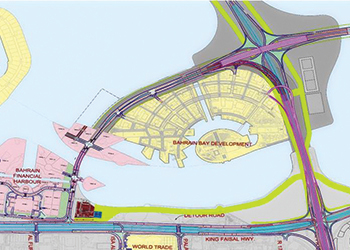
Expansion work at Lusail Port in Qatar is complete, increasing the capacity of the port to three million tonnes per year, a big boost to the booming construction movement in the city. The port is now open for operations.
Development work at the port is being undertaken by Qatar Primary Materials Company (QPMC), which is building it in two phases, says a report by Qatar’s The Peninsula.
Phase One of the port included infrastructure works to expand the berth. It took seven months and was completed in August 2013. Phase Two included the implementation of the top of the berth and was completed in May this year.
Lusail Port, one of the QPMC’s largest projects, is also one of the most important ports in Qatar catering to the needs of large-scale projects in the city. Its previous handling and unloading capacity was 500 tonnes per hour which has now risen to 1,000 tonnes with the expansion. It aims at reaching a discharge capacity of three million tonnes per year over an operating period of up to 10 years.
The port has been equipped with the most modern means of transportation and storage of construction materials. A hydraulic lift bridge facilitates the transfer of materials from the ships to the port and then to the car fleet.
The creation of an extra berth at the port was planned to increase its capacity in order to import gabbro rock and other bulk materials used in building and construction operations in Lusail City and the surrounding area.
The cement silos being developed by QPMC in Messaieed have been designed to discharge two million tonnes of cement per year with the total storage capacity of 60,000 cu m.
Once operational, the plant will be able to load 1,200 tonnes of cement per hour in trucks, which will significantly reduce truck loading time and improve the cost efficiency and handling capacity of the port significantly, thanks to the conveyor belts and silos facilities.
Meanwhile, QPMC’s conveyor belt project – one of the largest in the Middle East – is expected to be completed next month (October).
Once completed, the company’s total capacity will significantly increase to 35 million tonnes per annum from the existing 22 million tonnes.





















_0001.jpg)


.jpg)
















.jpg)








.jpg)






